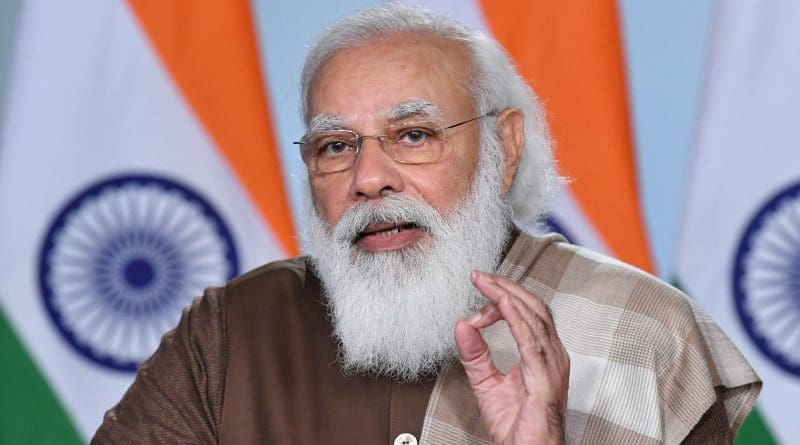India’s PM Modi Urges Countries To Embrace Sustainable Lifestyles Through Vision Of One Earth One Health
Prime Minister Narendra Modi of India used his address to the Davos Agenda 2022 to call on all countries to shift from a throwaway culture towards more sustainable lifestyles. Modi emphasized that while India is home to 17% of the world’s population, it contributes only 5% of global emissions.
“It is very essential that we move away from today’s take-make-use-dispose economy and towards a circular economy,” he said. India, which co-launched the International Solar Alliance at COP26 to ensure universal access to affordable solar energy, today generates 40% of its energy from non-fossil sources. Modi underlined that the next phase of India’s growth will be “green, clean, sustainable and reliable”.
The prime minister questioned the ability of the world’s multilateral organizations to meet challenges that did not exist when they were created. He said that reforming these institutions is “the responsibility of every democratic country”. In a clear call for greater global cooperation, he said: “Today, more than ever before, countries need each other’s help – this is the only path to a better future.” He offered India’s vision of One Earth One Health as a means of responding to global challenges, from the COVID-19 pandemic to climate change.
India is an entrepreneurial powerhouse that has created 10,000 new start-ups in the past six months and over 40 unicorns in 2021, Modi said, propelling the country into the top three in the world for billion-dollar new ventures. Its digital infrastructure is developing rapidly, with over 4.4 billion transactions taking place on its United Payments interface in the past month alone. Over the period 2020-2021, India attracted $82 billion in foreign direct investment – a new record. Modi said India is committed to becoming a trusted partner for global supply chains.
In a bid to improve the ease of doing business, Modi outlined the measures his government is taking to reduce government intervention to the minimum. He has done away with over 25,000 tax compliances in the past year and deregulated most sectors for investment, except for defence, aerospace and telecoms. His government is investing $1.3 trillion on connectivity-related infrastructure through its GatiShakti National Master Plan, which includes connecting over 6,000 villages through optical fibre. The plan’s aim, he said, is to “give new impetus to seamless connectivity for movement of goods, people and services”. India is also investing $26 billion to boost manufacturing and resilient supply chains.
The Prime Minister also spoke to the importance of collective and synchronized action to face global challenges. He highlighted new technology as an important area for countries to act together, “Another example is cryptocurrency. Given the kind of technology it is associated with, the decisions taken by a single country will be insufficient to deal with its challenges.”
Modi said India enters 2022 “infused with self-confidence”. Its economic growth is projected to hit 8.5%. It has already administered 1.6 billion COVID-19 vaccines. And, he added: “Our multilingual, multicultural environment is a great strength [that] teaches us not just to think of ourselves in times of crisis but to work in the best interests of the world.”

